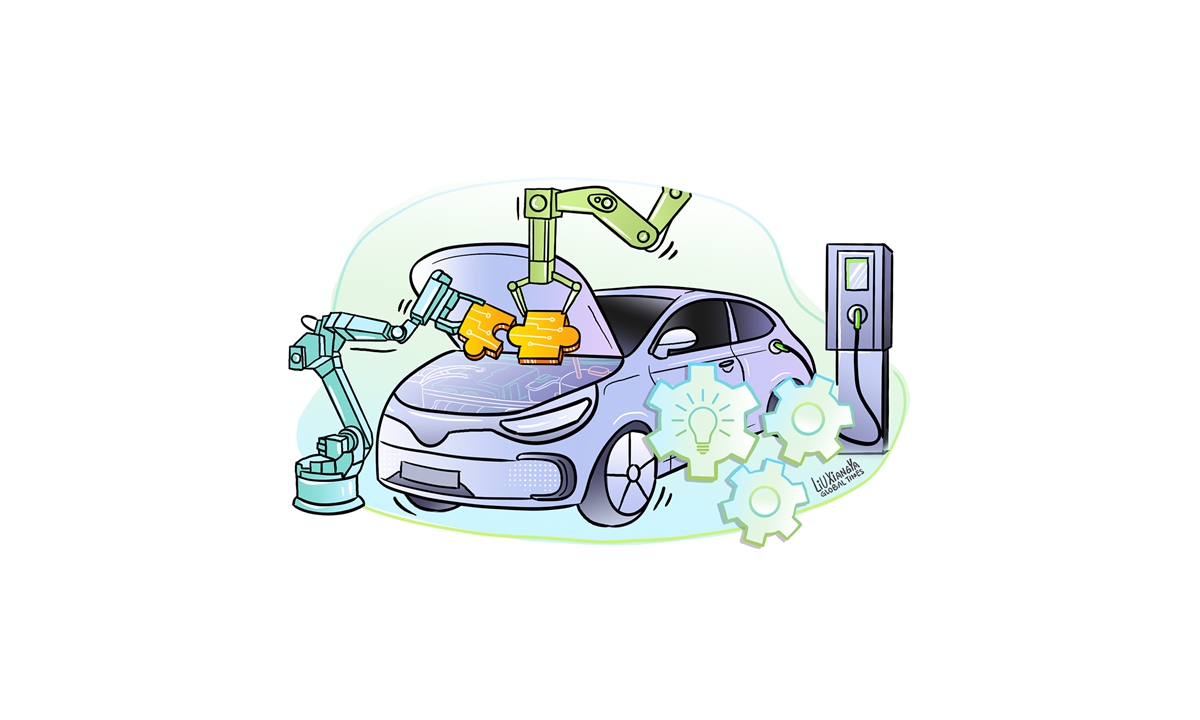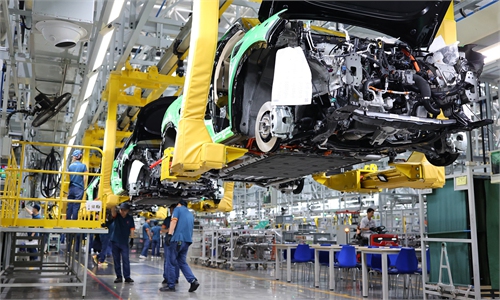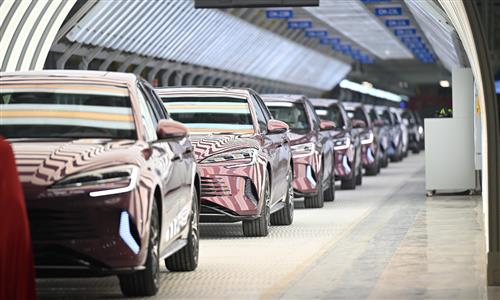
Illustration: Liu Xiangya/Global Times
Mitsubishi Motors' decision to end its auto production in China had triggered debate in the past few days, with some analysts claiming that the era when foreign automakers could earn big money through joint ventures (JVs) with Chinese companies has come to an end.Is this really the case? Not necessarily.
After China's reform and opening-up began in the late 1970s, JVs became mainstream in the country's auto sector, delivering huge benefits to both foreign automakers and their local Chinese partners. Admittedly, the business model of the JVs has made an important contribution to the development of China's auto industry, while foreign auto brands made a lot of money in the Chinese market. Mitsubishi was one of the beneficiaries of the JV model.
The Japanese carmaker was among the first foreign companies to enter the Chinese auto market, as it began exporting commercial vehicles to China as early as in the 1970s.
However, after decades of development, China's automotive industry has undergone profound changes. The rapid rise of Chinese brands is now a bright spot in the passenger vehicle market, and some foreign brands have begun to lose shares to their Chinese domestic rivals. Against this backdrop, special attention has been paid to Mitsubishi's decision to stop producing vehicles in China and exit a long-running JV, as people feel sorry for the brand because of its glorious past in the Chinese market.
Some foreign brands are falling behind in China. For instance, Toyota Motor, Honda Motor and Nissan Motor together sold 1.29 million new vehicles in the first nine months of 2023, down 26 percent year-on-year, as reported by Nikkei Asia.
The Nikkei report said Japanese automakers' global strategies are under pressure as the rapid rise of China's electric vehicle industry undercuts their traditional strength of fuel efficiency in the world's largest car market.
Sales growth of Chinese brands will seize a portion of the market share of foreign automakers. This is a result of market selection.
However, the era of foreign carmakers collaborating with Chinese companies to earn money has not just come to an end - in an era of the "new JV," fresh business models are badly needed.
First, in the "new JV" model, Chinese auto manufacturers, rather than foreign brands, may become the main providers of key elements such as technology and capital. In recent years, Chinese auto manufacturers have made breakthroughs in fields such as electric vehicle batteries. This means that foreign brands can obtain more profits than before through cooperating with Chinese enterprises, not only from China's consumer market, but also from China's advanced technology.
Second, as Chinese automakers increasingly focus on the global market, the "new JV" model should pay more attention to the export market. For policymakers in the West, they should be aware that if Western automakers want to continue to enjoy the dividends of the Chinese market and of the cooperation with Chinese companies, then the Western market should further open to Chinese companies, or JVs involving Chinese companies. Only when cooperation is mutually beneficial, which means all parties - including both Chinese companies and foreign ones - can earn money, then such cooperation is commercially reasonable and sustainable.
Third, Chinese automakers are accelerating their pace of building factories overseas, which means that the "new JV" model can focus not only on China, but also on other countries. As long as the model can bring profits to both Chinese and foreign enterprises, the model of jointly building factories overseas should be encouraged.
Currently, some Western politicians view such a "new JV" model with a zero-sum mind-set. Their geopolitical thinking will harm not only the interests of Chinese companies, but also those of Western companies.
China welcomes companies from all over the world to invest in the country and continue to share the country's development dividends, while Chinese enterprises hope to strengthen cooperation with their foreign counterparts. Amid the rapid rise of Chinese automobile brands, especially energy vehicle companies, the "new JV" will develop new business models.
The author is a reporter with the Global Times. bizopinion@globaltimes.com.cn



